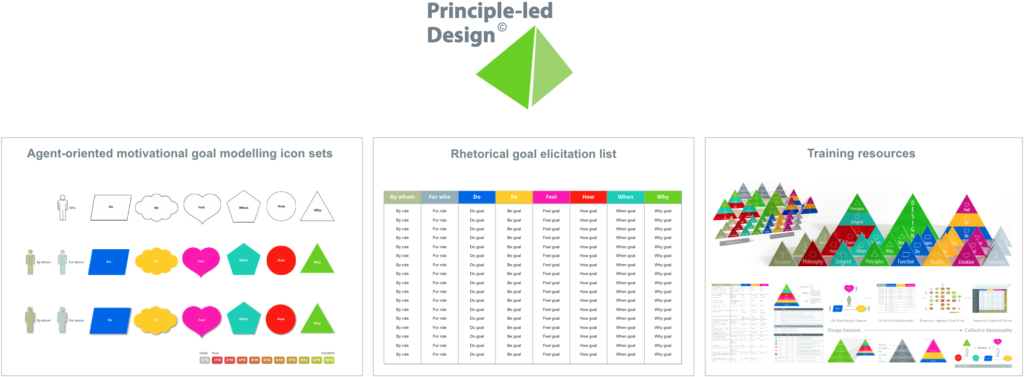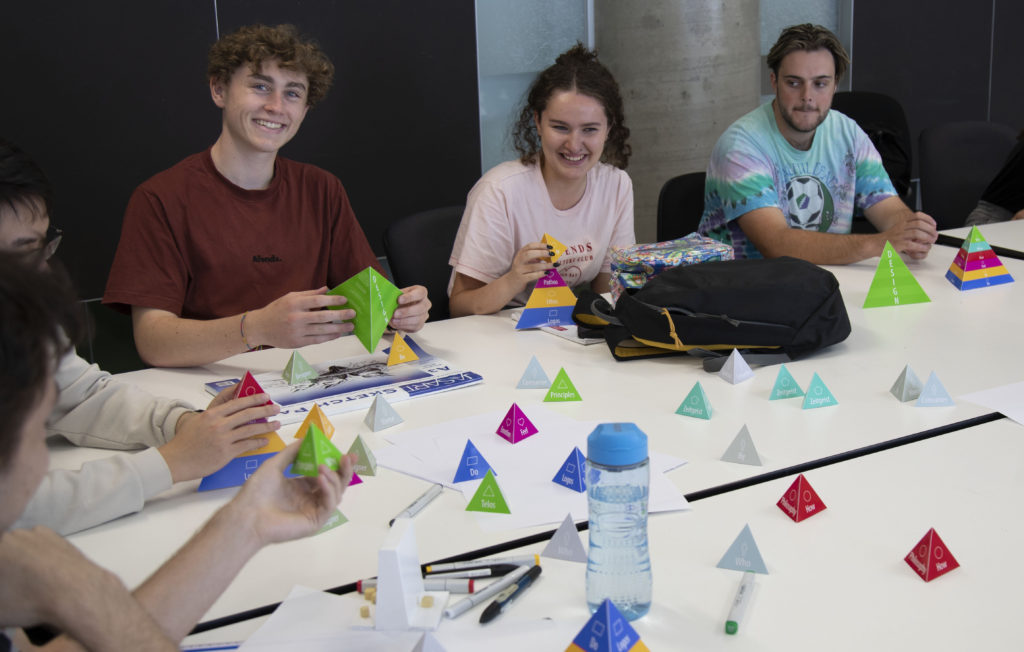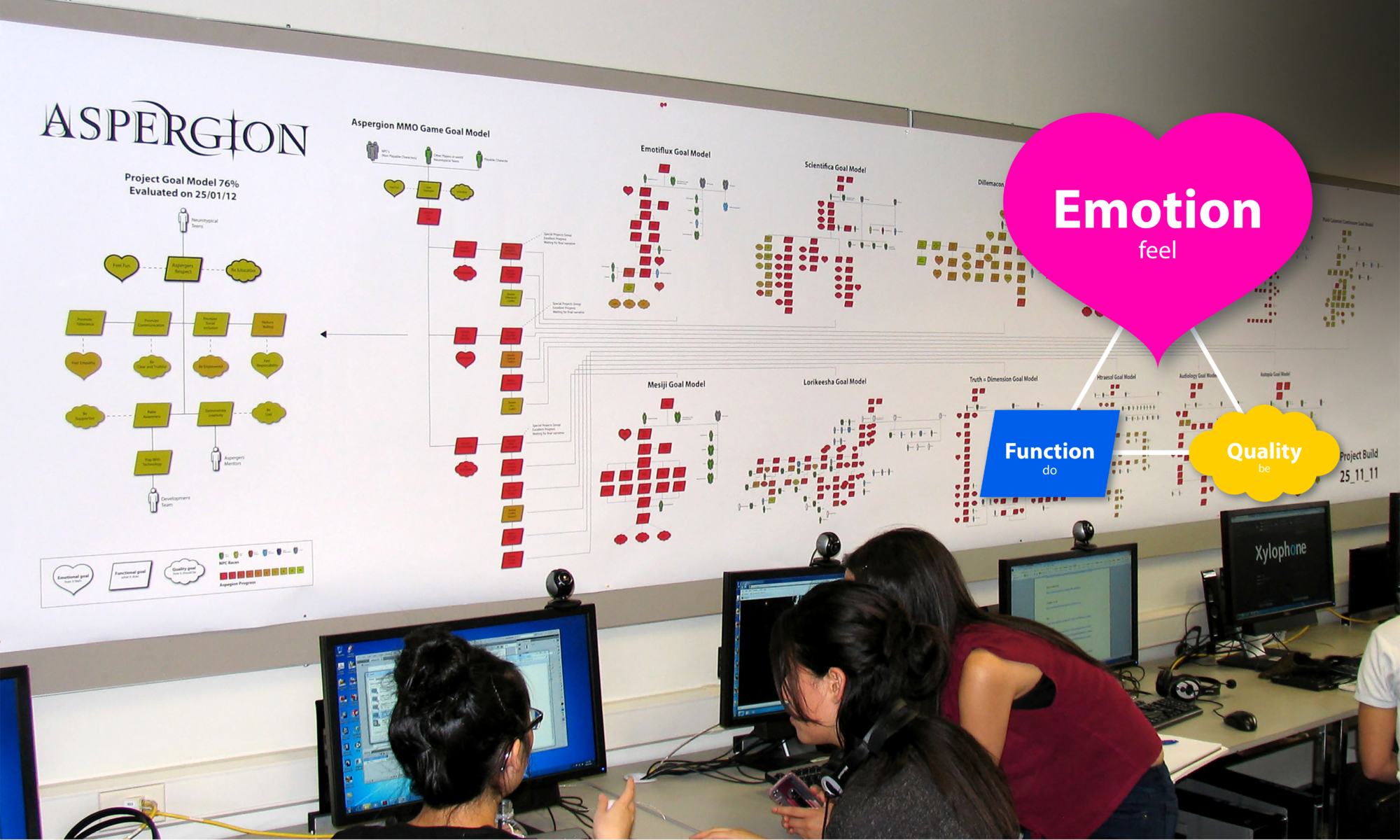
Dr. James George Marshall
Dr. James George Marshall is a professional designer, academic and software developer. Specialising in emotion design, Marshall coined the term emotional goals and the emotion design method to enhance existing and construct new emotions.
James has over 30 years of commercial experience in the design and development of physical products, games, and interactive systems. His company, Education Network Group, develops science-based educational products. These include Whizkid Games , which helps autistic children to develop independent living skills, and Science Island which promotes STEM learning for children globally.
James is a senior lecturer of design at Swinburne University of Technology where he teaches into the Master of Design and Architecture program. He has received an Australian Learning and Teaching Council (ALTC) Citation for Outstanding Contributions to Student Learning and three Swinburne Vice chancellors’ awards for teaching excellence and community engagement.
Marshall’s research incorporates state of the art concepts from design, artificial intelligence, and neuroscience to model, create and evaluate systems involving the interaction of people and technology. This research is applied in his Principle-led Design Toolkit, which facilitates the creation of wonderful design.
His design work is internationally recognised and awarded. In 2010 he won the overall best commercial design, across all categories in the Biennial Victorian Premier’s Design Awards. The same year The Age newspaper, named James George Marshall in their list of Melbourne’s “Top 100 influential people”.
Websites:
http://emotionalgoals.com
http://www.autismgames.com.au
http://scienceisland.com
PhD Thesis
Towards Wonderful Design: Elements, Principles, Methods & Applications.

Miro Board

https://miro.com/app/board/o9J_lx6g6q0=/
Emotional Goals in Socio-technical Systems
The consideration of emotion is fundamental to the development of sociotechnical systems. If a computer game does not feel fun, we will not play it; if an ecommerce website does not feel trustworthy (irrespective of the actual security) we will not purchase from it; and if a social networking application does not feel engaging we will not use it.

Definition of Emotional Goals
Emotional Goals are predictive conceptual abstractions that construct social reality, in a collective with other brains. By sharing and synchronizing those abstractions we can perceive each other’s emotions and communicate.
Agent-oriented Modelling of Emotional Goals
As digital technologies increase in complexity and collaboration with other disciplines is necessary, a trans-disciplinary approach for developing sociotechnical systems is required, where digital media design practices may be incorporated into software engineering. Agent-oriented models show potential, not only to identify and realise emotional goals, but also to provide an overall progressive evaluation of these goals
To promote the consideration of human factors Marshall proposes a new category of goal, called an emotional goal, to be modelled with equal hierarchy to functional and quality goals. By incorporating emotional goals into agent-oriented models the aim is to signal that the goal may be best realised by a trans-disciplinary approach. When these goals are encountered by software engineers they should seek a domain knowledge expert to apply digital media design methodologies and processes.
An icon set was developed for these goals as illustrated in Figure 1. This includes the conventional parallelogram and cloud to signify functional and quality goals with the introduction of a heart symbol to signify emotional goals.
Goal Modelling Icons
![]()
Figure 1. Icon set for emotional, functional and quality goals. Download vector icons here: Icons_2022
Intellectual Property
The icon set may be used under creative commons with attribution to Dr. James George Marshall.
The Emotion Design Method
Publications
MARSHALL, J. Using goal models for project management in teaching. OzCHI, 2012 Melbourne.
Awards
| 2021 | International Design Award (Silver), 664 Collins Media Wall |
| 2011 | Vice-Chancellor’s Award for Community Engagement. |
| 2010 | Premier’s Recognition Award (pinnacle award) – Whizkid Games |
| 2010 | Premier’s design Award (winner) – Whizkid Games |
| 2010 | Red Dot Communication Design Award – Mission H20 |
| 2010 | Red Dot Communication Design Award – The Carbon Tradies |
| 2010 | Melbourne Advertising & Design Club, Best Online Game – Whizkid Games |
| 2010 | Web Marketing Association Award, Education Standard of Excellence – Whizkid Games |
| 2010 | Web Marketing Association Award, Health Care Standard of Excellence – Whizkid Games |
| 2010 | Asian Pacific Animation Competition Best Documentary |
| 2010 | Asian Pacific Animation Winner, Australia |
| 2009 | Communicator Awards, Gold Award of Excellence, Interactive, Green/Eco Friendly – Mission CO2 |
| 2009 | Communicator Awards, Silver Award of Distinction, Interactive, Children’s – Mission CO2 |
| 2008 | Webby Awards, Official Honouree – Mission H2O |
| 2008 | Victorian Premier’s design Awards, Cultural Multimedia design – Mission H2O |
| 2008 | 2008 President’s Award, eLearning Industry Association of Victoria |
| 2007 | Vice-Chancellor’s Award for Community Engagement |
| 2006 | Carrick Institute (TEQSA) Citation for Outstanding Contributions to Student Learning |
| 2005 | Vice-Chancellor’s Award for Teaching Excellence |
| 2005 | Stacks, Global Student Animation Awards |
| 2005 | Australian Teachers of media (ATOM) Award – Best Tertiary Educational Resource |
| 1997 | Highest Achieving Student Award (Psychology of Learning) Swinburne University. |
Current Projects
Contact
James Marshall,
Senior Lecturer, Swinburne University of Technology
jgmarshall@swin.edu.au

